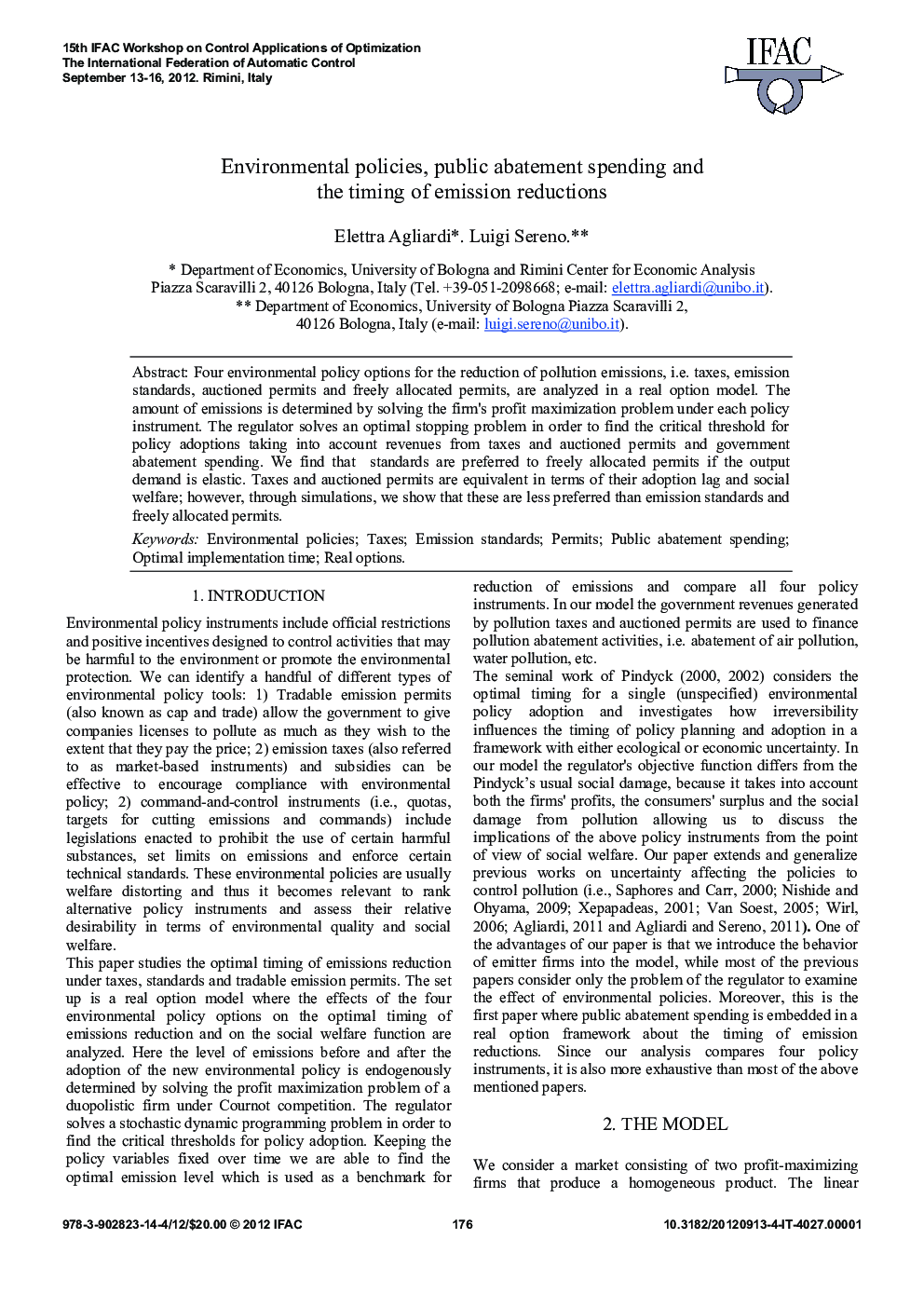| Article ID | Journal | Published Year | Pages | File Type |
|---|---|---|---|---|
| 717564 | IFAC Proceedings Volumes | 2012 | 6 Pages |
Four environmental policy options for the reduction of pollution emissions, i.e. taxes, emission standards, auctioned permits and freely allocated permits, are analyzed in a real option model. The amount of emissions is determined by solving the firm's profit maximization problem under each policy instrument. The regulator solves an optimal stopping problem in order to find the critical threshold for policy adoptions taking into account revenues from taxes and auctioned permits and government abatement spending. We find that standards are preferred to freely allocated permits if the output demand is elastic. Taxes and auctioned permits are equivalent in terms of their adoption lag and social welfare; however, through simulations, we show that these are less preferred than emission standards and freely allocated permits.
